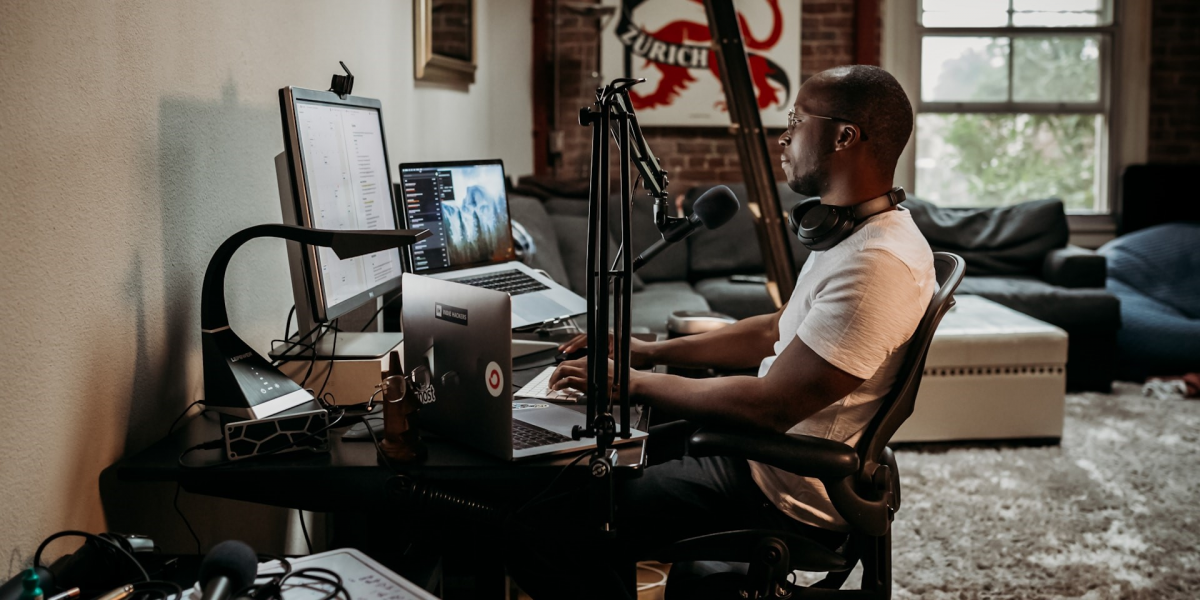More musicians today are choosing to record at home rather than in traditional studios. With advancements in affordable recording technology, artists have greater freedom to create in familiar environments. Here, we’ll explore why more musicians are setting up home studios, the benefits of home recording, and how it’s reshaping the music industry.
How Has Home Recording Become Accessible to Musicians?
One major reason artists are shifting to home studios is the availability of affordable, high-quality recording equipment. In the past, setting up a personal studio required a large investment in gear and software. However, with today’s affordable equipment—such as professional-grade microphones, audio interfaces, and digital audio workstations (DAWs)—musicians can now achieve professional-quality recordings without leaving their homes.
This accessibility has transformed recording from a high-budget venture into something achievable for musicians at every level. The ability to access industry-standard technology has democratized the music-making process, allowing independent and up-and-coming musicians to record without the financial obstacles associated with traditional studios. By making quality equipment available to all, home recording has given a platform to countless new voices in music.
As recording technology continues to advance, musicians are increasingly choosing home setups over costly studio time. The range of options available means artists no longer need to rely on expensive rentals to create music that meets their vision.
Why Are Musicians Drawn to the Creative Freedom of Home Studios?
Home recording offers a level of creative freedom and control that’s hard to replicate in a traditional studio setting. In a rented studio, time limitations and schedules can pressure artists to work quickly. At home, musicians can work at their own pace, experimenting with different sounds, styles, and arrangements without feeling rushed.
This freedom to explore and experiment is invaluable to the creative process. When working at home, artists have the liberty to push boundaries, re-record sections, or try out a completely different arrangement on the spot. In contrast to the constraints of a rented studio, where time and resources are limited, home setups give artists the space to create authentic music that resonates with their true vision.
Recording at home also allows artists to work whenever they feel most inspired. Whether it’s early morning or late at night, artists can capture their ideas without waiting for an open studio slot. The comfort of a home environment further enhances creativity, as musicians are free to develop their work in a familiar space that feels natural and inspiring. This flexibility leads to recordings that feel genuine, capturing the artist’s creativity at its peak.
How Do Artists Benefit Financially from Home Recording?
Financial flexibility is another significant benefit of home recording. Studio rentals, session musicians, and engineer fees can add up quickly, making traditional recording sessions costly for independent artists on limited budgets. Recording at home allows musicians to save on these expenses and use their funds strategically to advance their music careers.
By keeping costs down, artists can invest in other areas essential to their success, such as marketing, promotions, or equipment upgrades. Many musicians choose to purchase software or gear that will enhance their home recording experience, providing long-term benefits and empowering them to produce high-quality music over time. For independent artists, this financial flexibility is invaluable as it provides room to grow without overwhelming expenses.
In addition to financial savings, home recording gives artists a sense of self-reliance and independence. By handling the recording process themselves, musicians can steer their careers in their own direction, releasing music that aligns with their artistic vision. This independence allows artists to pursue goals like self-releasing albums, licensing music for media, or building their fan base on digital platforms, creating a career that’s uniquely theirs.
What Does the Future Hold for Home Recording?
Home recording is fundamentally changing how music is made and shared. With more accessible recording equipment, the freedom to create on one’s own schedule, and the flexibility of managing production costs, musicians have greater control over their creative process than ever before.
As technology continues to advance, the opportunities for artists working from home are likely to expand. Recording equipment will continue to improve, allowing musicians to achieve studio-grade quality from their home setups. This shift means more artists can focus on developing their unique sound without being limited by financial or logistical constraints.
The trend of home recording represents a new era in the music industry. Musicians can connect directly with audiences, market their work independently, and thrive by pursuing their creative visions without compromise. With home studios, artists have the chance to make their mark on music, shaping the future from the comfort of their own homes.















